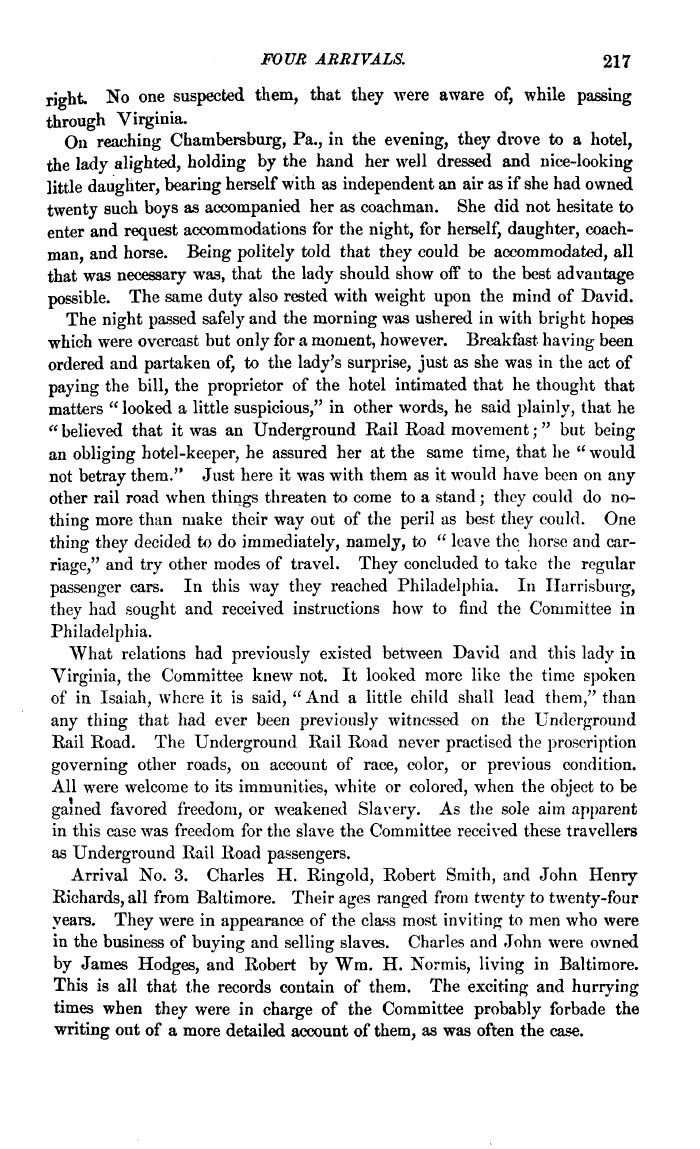 |
||||
 |
||||
| FOUR ARRIVALS. 217 right. No one suspected them, that they were aware of, while passing through Virginia. On reaching Chambersburg, Pa., in the evening, they drove to a hotel, the lady alighted, holding by the hand her well dressed and nice-looking little daughter, bearing herself with as independent an air as if she had owned twenty such boys as accompanied her as coachman. She did not hesitate to enter and request accommodations for the night, for herself, daughter, coachman, and horse. Being politely told that they could be accommodated, all that was necessary was, that the lady should show off to the best advantage possible. The same duty also rested with weight upon the mind of David. The night passed safely and the morning was ushered in with bright hopes which were overcast but only for a moment, however. Breakfast having been ordered and partaken of, to the lady's surprise, just as she was in the act of paying the bill, the proprietor of the hotel intimated that he thought that matters " looked a little suspicious," in other words, he said plainly, that he " believed that it was an Underground Rail Road movement;" but being an obliging hotel-keeper, he assured her at the same time, that he " would not betray them." Just here it was with them as it would have been on any other rail road when things threaten to come to a stand; they could do nothing more than make their way out of the peril as best they could. One thing they decided to do immediately, namely, to " leave the horse and carriage," and try other modes of travel. They concluded to take the regular passenger cars. In this way they reached Philadelphia. In Harrisburg, they had sought and received instructions how to find the Committee in Philadelphia. What relations had previously existed between David and this lady in Virginia, the Committee knew not. It looked more like the time spoken of in Isaiah, where it is said, " And a little child shall lead them," than any thing that had ever been previously witnessed on the Underground Rail Road. The Underground Rail Road never practised the proscription governing other roads, on account of race, color, or previous condition. All were welcome to its immunities, white or colored, when the object to be gamed favored freedom, or weakened Slavery. As the sole aim apparent in this case was freedom for the slave the Committee received these travellers as Underground Rail Road passengers. Arrival No. 3. Charles H. Ringold, Robert Smith, and John Henry Richards, all from Baltimore. Their ages ranged from twenty to twenty-four years. They were in appearance of the class most inviting to men who were in the business of buying and selling slaves. Charles and John were owned by James Hodges, and Robert by Wra. H. Normis, living in Baltimore. This is all that the records contain of them. The exciting and hurrying times when they were in charge of the Committee probably forbade the writing out of a more detailed account of them, as was often the case. |